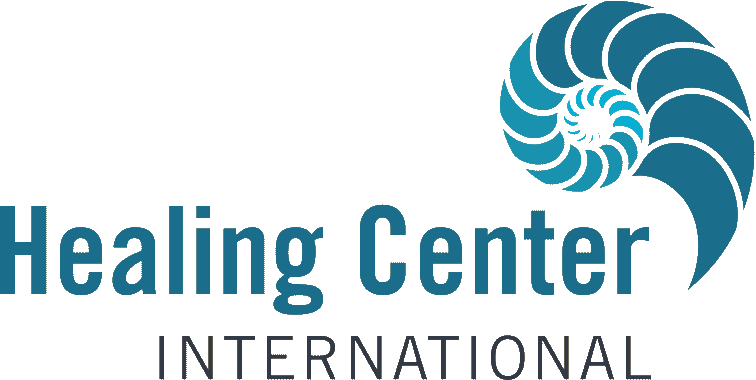An Introduction to the Stages of Human Maturity
/By Elizabeth Stalcup, founder and executive director of Healing Center International
“Instead, speaking the truth in love, we will grow to become in every respect the mature body of him who is the head, that is, Christ.”
“I keep praying about it, but I still feel angry.”
“That person is so generous, more than the people in my church, and she is not even a Christian.”
“My relationships keep repeating the same unhealthy patterns, even though I am trying hard to change. I don’t understand! Maybe it is just the way I am.”
Perhaps you have heard these statements or said them yourself. Many of us feel stuck, but years of attending church, reading the Bible, and being part of a small group have left us frustrated that transformation isn’t coming as quickly, or as completely, as we had hoped. We’ve tried so many things, listened to so many who said, “This is the way!” Only to fall back into the same unhealthy patterns over and over again.
Why aren’t we experiencing more growth? Is God not listening? Is this the way we are, and we will have to live like this for the rest of our lives?
Before you give up, consider another option: Immaturity!
We were created by God to mature, in stages, from conception to death. Even though we all need to mature, we are not taught much about maturity in our culture. Some kinds of maturity, such as physical maturity are fairly obvious—we all know that we start as a tiny embryo and over time grow a body. We are born immobile, yet gradually, without anyone teaching us, we learn to sit, stand, crawl and walk. We learn to use a spoon, then later a knife. We go through puberty. We age.
Other kinds of maturity are not so obvious. For example, when you look at someone, you might accurately assess their physical stage if they have an adult body. But it is not so easy to tell if they are emotionally, psychologically, or relationally mature. We would need to interact with them over time to assess the more hidden aspects of their human maturity. And even then, our guesses might be off because, beyond physical maturity, most of us don’t know the signs of the other aspects of human maturity. Where should we be? What is missing? How do we recover?
To make things even more complicated, we often have misconceptions about spiritual maturity. We assume that we are spiritually mature if we know the Bible and have correct theology. Then we learn that apologetics master, Ravi Zacharias, was a secret predator and we wonder, was he mature? And if he was not, what was missing?
Because different types of maturity are distinct, the path to acquiring them is also distinct. As David Takle writes in his Forming: Change by Grace course, “Most of us have been taught that human maturity has to do with becoming more and more autonomous [independent]. We have also been taught that spiritual maturity happens from trying hard to be a good Christian. Both of these views are mistaken” (Takle 2011, 146). Spiritual maturity occurs as a believer interacts with God personally and in the context of healthy Christian community. Human maturity is a developmental process all people, Christian or not, experience as we develop over our lifetime.
In reality, most of us have matured physically but failed to mature in other ways. Maturing is our job, and it needs to be done in community. We acquire missing skills by spending time with people who have the skills we lack. We don’t have to focus on the missing skill when we are together, we just have to share life. My brain watches what you do and learns from your voice tone, facial expressions, words, and body language that this is how we regulate anger.
For the next five months, we are going to look at human maturity in order to identify a missing skill that we—with the help of God and our community—will recover from in 2021. We will be looking at maturity in stages—infant, child, adult, parent and elder. We will provide some self-assessment worksheets to help you identify a maturity deficit that is within your reach.
Each stage of human maturity—infant, child, adult, parent, and elder—has both needs and tasks. The needs are what we needed to receive from others, our parents or community. The tasks are the things we must master at each stage. The good news is, yes, we can recover. Even if you are missing an infant skill, you can recover. It is not too late. Is it easy? No. But it is worthwhile. In fact, recovering our maturity is probably one of the most worthwhile things we can do because it increases our capacity to give to a world in desperate need. It is a real answer for real people.
How does it work?
Let’s remember:
Our emotional, psychological and relational development progresses, or stagnates, as our needs are met; first, with primary caregivers, and then others in community.
We all have gaps in our maturity skill acquisition. Those deficits can trip us up.
Knowing our deficits is life changing. We see what needs to happen. We see why we disagree with our spouse about so many things (you have different deficits!)
It is our job to recover. God will help us, but maturity is our job.
Our parents gave us what they could, but their deficits got passed on to us, unless we had a grandparent, teacher, or caregiver to help us mature in that area.
None of us are perfectly mature, this side of heaven. Accordingly, we must give ourselves, and each other, grace.
Human maturity is also not limited to a set span of time. If we didn’t have needs met, or achieve specific skills by a certain milestone, we are not destined to stay stuck.
At HCI we have a robust community, people who are growing and maturing, people who can provide mentoring and encouragement, allowing us to observe what a mature response might be in everyday life.
Maturity skills are skills for a lifetime. They enrich our lives, give us capacity. We can continue to mature our entire life. There is always hope.
Throughout the next several HCI blog posts, the human maturity stages will be addressed, one at a time. We will provide: an explanation of the featured stage, a list of skills common to the stage, an optimal age-range when the skills are first learned, and an assessment we can use to gauge our own maturity, as well as an exercise to interact with God about his intention to guide us through the process.
This series is in no way intended to be exhaustive or a substitute for interaction with community regarding these stages and skills. We offer this resource only to pique your interest and invite you into a larger conversation with yourself, God, and community.
Please be aware that you may find some of the material covered, the survey especially, triggering. If you experience any signs of overwhelm, please stop reading, practice quieting, invite Jesus to be with you, or seek out someone you know who is glad to be with you. Maturity requires others. Please approach this slowly and in the context of community. In fact, for addressing these skills in your own life, we wouldn’t want you to do it any other way! For those who discover they have questions after reading the material, Betsy will offer an hour-long question and answer session each month dedicated to addressing questions about the featured stage.


